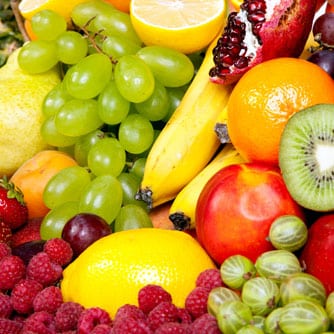Whole fruits are an abundant source of fiber, antioxidants, and other phytochemicals that may help to promote overall health. Qi Sun, from Harvard School of Public Health (Massachusetts, USA), and colleagues analyzed data collected on 66,105 women enrolled in the Nurses’ Health Study, 85,104 from the Nurses’ Health Study II, and 36,173 men from the Health Professionals Follow-up Study. Every 4 years, subjects were surveyed as to how often they ate various foods and on their diabetes status, among other measures. While all participants were free of major chronic diseases at baseline, 6.5% developed diabetes during follow-up. Adjusted hazard ratios pooled across the three studies for diabetes risk per three whole fruit servings per week were: 0.74 for blueberries; 0.88 for grapes and raisins; 0.93 for apples and pears. Cantaloupe elevated the diabetes risk by 10%; whereas the risk was neutral for peaches, plums, apricots, prunes, oranges, and strawberries. Interestingly, the researchers found that the same amount of fruit juice correlated with a significant 8% elevated risk of developing diabetes. The study authors conclude that: “Greater consumption of specific whole fruits, particularly blueberries, grapes, and apples, is significantly associated with a lower risk of type 2 diabetes, whereas greater consumption of fruit juice is associated with a higher risk.”
More Fruit Lessens Diabetes Risk
Isao Muraki, Fumiaki Imamura, JoAnn E Manso, Qi Sun, et al. “Fruit consumption and risk of type 2 diabetes: results from three prospective longitudinal cohort studies.” BMJ 2013;347:f5001; 29 August 2013.
RELATED ARTICLES




